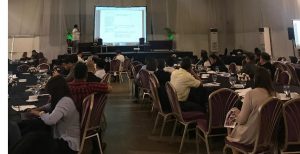
In a bid to suppress corruption, the Bureau of Customs (BOC) is now in its second phase of pilot testing the implementation of the 1-Assessment System in selected ports in the country.
1-Assessment which is formerly known as Enhanced Goods Declaration Verification System (EGDVS) is a web-based application which will institutionalize the “Zero Contact Policy” in the cargo clearance process. The system will randomly assign Customs examiners and appraisers to goods declaration filed, thus, removing the “suki system”.
As such, examiners, appraisers and brokers can now only communicate through the 1-Assessment portal. Pursuant to Customs Modernization and Tariff Act and other related laws and regulations, Customs Memorandum Order (CMO) 17-2018, which implements the system, provides sanction and penalties to violating parties. .
For transparency, the system also enables importers and brokers to obtain real-time status of their goods declaration lodged with the BOC.
The system will only cover “import consumption entries cleared under the formal entry process in all ports of entry.
Exempted from the 1-Assessment system, even if cleared under the formal entry process, are the (1) Super Green Lane shipments, (2) articles withdrawn from the Customs Bonded Warehouse for local consumption, (3) wastages under the Bonded Warehouse Regime and jet operation losses, (4) goods entered as temporary imports for subsequent re-exportation and (5) deferred payment of government.
To use the system, importers and brokers shall lodge their goods declaration through the Value Added Service Providers, who shall in turn transmit the E2M lodged goods declaration to the 1-Assessment system.
The brokers must then attach the supporting documents to the system. However, original hard copies of supporting documents and notarized copy of the Single Administrative Document (SAD) and Supplemental Declaration on Valuation shall be submitted to the Entry Processing Unit or equivalent office in the port for documents verification.
Another feature of the system is the randomly re-assignment of goods declaration that remained unattended for two hours.
The 1-Assessment system which is the second version of the EGDVS was already implemented at the Port of Manila and Manila International Container Port in October 2017. Covered in the second-pilot implementation are the ports of Batangas, Clark, Limay, Subic and Surigao and the sub-ports of Bislig, Nasipit, Mariviles, Siain, Puerto Princesa and Bauan. Expected full implementation of the system will either be in December 2018 or in early 2019. (ARB)

 Customs Commissioner Isidro Lapeña announced that the Bureau of Customs (BOC) will create a multi-agency body composed of government agencies and port stakeholders and users that will address issues hounding the private sector.
Customs Commissioner Isidro Lapeña announced that the Bureau of Customs (BOC) will create a multi-agency body composed of government agencies and port stakeholders and users that will address issues hounding the private sector.